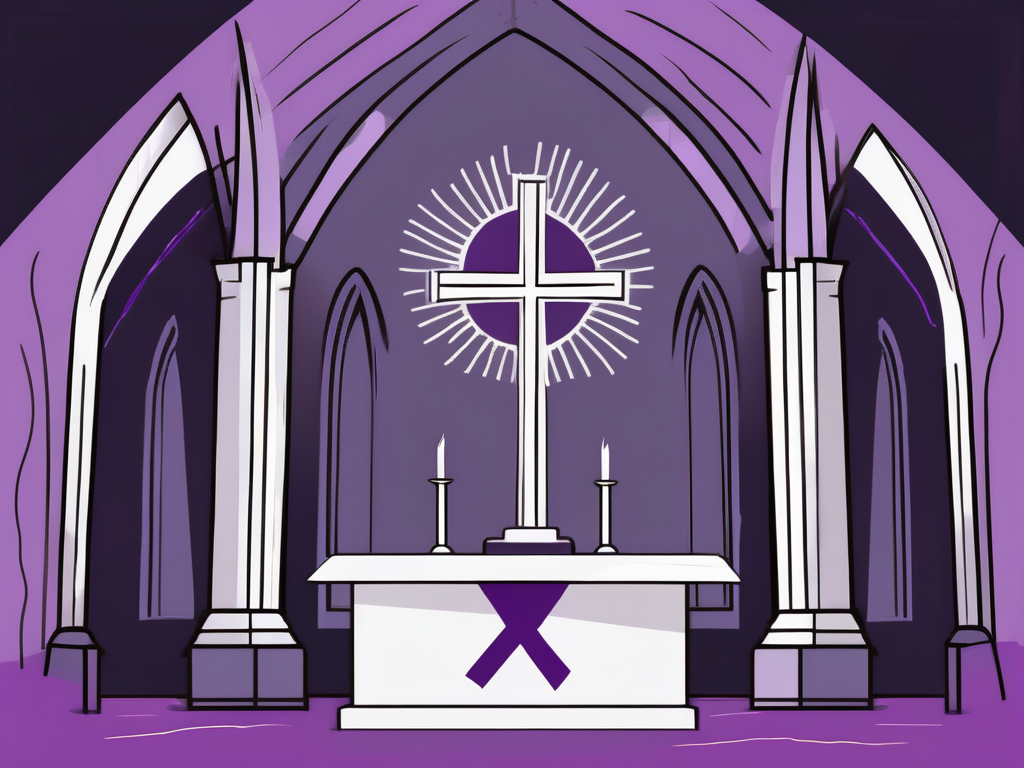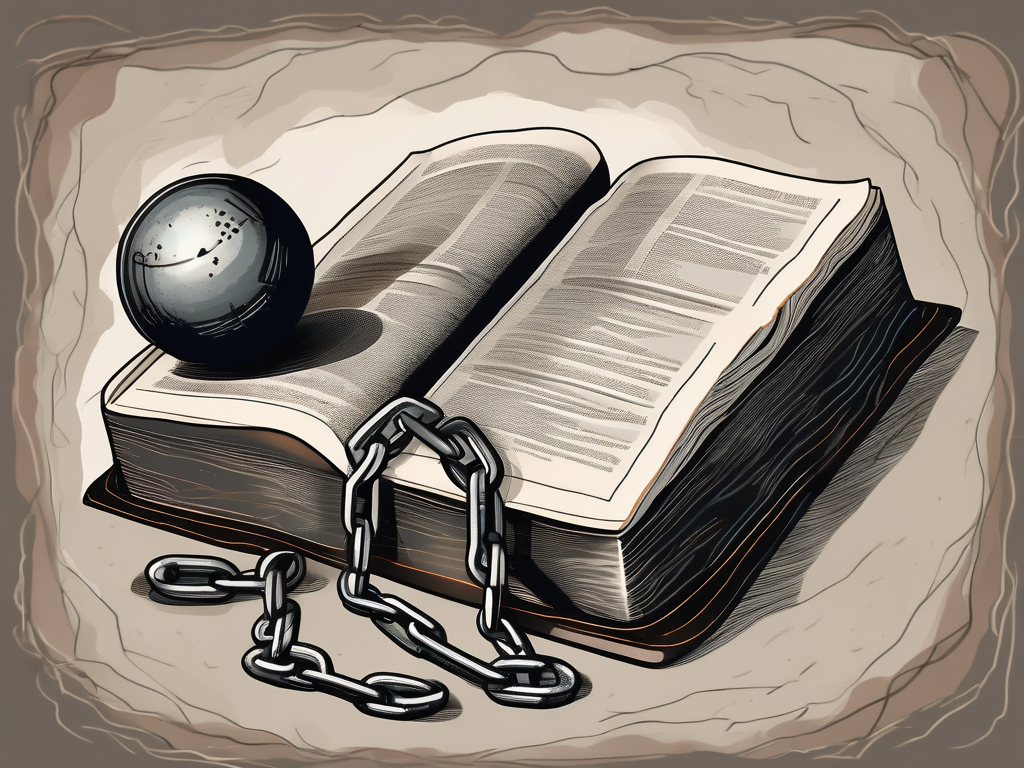Cremation is a topic that often sparks discussions and debates, especially among those who hold religious beliefs. Many individuals wonder what the Bible has to say about this practice. Does it condone or condemn it? Is it acceptable for believers to choose cremation as a final resting option? In this article, we will explore various perspectives and delve into the biblical references to gain a better understanding of cremation in the context of Christian beliefs.
Understanding the Concept of Cremation
Before we dive into the biblical references, let’s first define cremation. Cremation is the process of reducing a body to ashes through intense heat, typically done in a crematorium. It has been practiced across different cultures and time periods, often associated with various symbolic meanings and beliefs.
Cremation, from a purely technical standpoint, is a method of disposition of the deceased that has, over the years, gained popularity. Instead of traditional burial, where the body is interred in the ground, cremation offers an alternative where the body is reduced to ashes.
When we explore the historical context of cremation, we find that throughout history, it has been practiced by different civilizations, and its significance and acceptance have varied. For example, ancient Greeks saw cremation as a liberating process that freed the soul from the physical body, allowing it to transcend into the afterlife. This belief was rooted in their understanding of the soul’s immortality and the idea that the body was merely a vessel for the soul during its earthly existence.
In contrast, in Hinduism, cremation is seen as an essential part of the spiritual journey. According to Hindu beliefs, the body is considered impure after death, and cremation is seen as a way to purify the soul and release it from the cycle of reincarnation. The ashes are then typically scattered in a sacred river, symbolizing the return of the soul to its divine source.
While cremation has been practiced for centuries, its popularity has significantly increased in recent times. Factors such as limited burial space, environmental concerns, and changing cultural attitudes towards death and afterlife have contributed to the rise in cremation rates. Additionally, cremation offers a more flexible and personalized approach to memorialization, allowing families to choose how they want to remember and honor their loved ones.
It is important to note that the decision to choose cremation or traditional burial is deeply personal and can be influenced by cultural, religious, and individual beliefs. Some may find comfort in the idea of returning to the earth through burial, while others may prefer the symbolism of transformation and release associated with cremation.
Overall, understanding the concept of cremation involves delving into its historical, cultural, and religious significance. By exploring these different perspectives, we can gain a deeper appreciation for the diverse ways in which human societies have approached the end-of-life rituals and the profound meanings they attach to them.
Biblical References to Death and Afterlife
The Bible contains several passages that discuss death and the afterlife. These passages provide believers with insights into how death and burial practices have been understood throughout history. While the Bible does not explicitly mention cremation as a specific burial practice, exploring these references can shed light on the perspectives of believers.
Old Testament Perspectives
In the Old Testament, burial was the prevalent method of disposition. Significant figures such as Abraham, Isaac, and Jacob were buried in graves or tombs, emphasizing the importance of honoring the deceased through a proper burial. The act of burial symbolized respect and reverence for the deceased, ensuring their place in the ancestral lineage.
However, there are instances in the Old Testament where burning is associated with dishonorable deaths or punishment. For example, burning bodies after execution was seen as a form of punishment and disgrace. These instances, though not directly addressing cremation as a general practice, highlight the negative connotations associated with burning the deceased.
New Testament Perspectives
In the New Testament, burial continues to be the primary method of disposing of the deceased. The burial of Jesus Himself serves as a significant example, as He was laid to rest in a tomb. This act of burial holds deep theological significance, symbolizing the hope of resurrection and eternal life.
While the absence of direct references to cremation in the New Testament may lead some to question its acceptability, it is important to note that the Bible does not explicitly prohibit or condemn cremation. Instead, the emphasis is placed on the reverence and respect for the deceased, regardless of the chosen method of disposition.
Throughout history, believers have interpreted these biblical references in various ways. Some view cremation as a departure from the traditional burial practices mentioned in the Bible, while others see it as a valid choice that does not contradict the core teachings of Christianity. Ultimately, the decision regarding burial practices is a personal one, guided by individual beliefs and cultural customs.
By exploring the biblical references to death and afterlife, believers can gain a deeper understanding of the historical context surrounding burial practices. These references provide a framework for contemplating the significance of honoring the deceased and offer insights into the diverse interpretations of cremation throughout the history of Christianity.
Interpretations of Cremation in the Bible
While the Bible doesn’t explicitly endorse or condemn cremation, some passages provide an indirect perspective on the practice. These interpretations can vary among theologians and religious scholars.
When exploring the topic of cremation in the Bible, it is important to note that the practice itself was not prevalent during biblical times. Burial was the more common method of disposing of the deceased, as it was seen as a way to honor and respect the body.
However, despite the lack of explicit references to cremation, there are instances in the Bible where burning is mentioned. One such example is the story of King Saul and his sons being burned after their death. It is important to note, though, that these instances are specific to certain individuals and circumstances and don’t necessarily provide a broad statement on cremation as a whole.
Direct References to Cremation
The story of King Saul and his sons being burned after their death can be found in 1 Samuel 31:12. After their defeat in battle, the bodies of Saul and his sons were taken by the Philistines, who stripped them of their armor and fastened their bodies to the wall of Beth Shan. The men of Jabesh Gilead, upon hearing of this, went to Beth Shan, took down the bodies, and burned them. This act of burning was seen as a way to prevent further desecration of the bodies.
While this incident does involve burning, it is important to note that it is a specific case and not a general endorsement or condemnation of cremation. It is also worth considering the cultural and historical context in which this event took place, as practices and beliefs regarding death and burial varied among different ancient cultures.
Indirect Implications of Cremation
Some argue that the belief in bodily resurrection supports burial rather than cremation. The concept of resurrection focuses on the reunion of the body and soul in the afterlife. In this view, burial is seen as a way to preserve the body and prepare it for the eventual resurrection.
However, proponents of cremation argue that God is not limited by the physical remains, and resurrection can occur regardless of the body’s condition. They believe that God has the power to resurrect individuals even if their bodies have been cremated.
It is important to note that interpretations of cremation in the Bible can vary among different religious traditions and individual believers. Some may see cremation as a respectful and practical choice, while others may view burial as the preferred method of disposition. Ultimately, the decision on whether to choose cremation or burial is a personal one, guided by one’s own beliefs, cultural practices, and individual circumstances.
Theological Perspectives on Cremation
Beyond the biblical references, the question of cremation is also viewed through different theological lenses, often influenced by specific Christian denominations.
When examining the theological perspectives on cremation, it is important to consider the views held by different Christian denominations. These denominations hold diverse opinions on cremation, which have evolved over time.
Views from Different Christian Denominations
One prominent Christian denomination that historically discouraged cremation is the Catholic Church. However, in recent years, the Catholic Church has allowed cremation under specific circumstances. This change in stance reflects a growing acceptance of cremation within the Catholic community.
On the other hand, various Protestant denominations have a more accepting stance towards cremation. These denominations recognize the importance of personal preferences and cultural differences when it comes to the disposition of the deceased. They believe that cremation can be a valid and respectful choice.
Theological Arguments for and Against Cremation
From a theological standpoint, there are arguments both for and against cremation. Those in favor of cremation often emphasize the belief that God is not limited by the physical body. They argue that resurrection can occur regardless of the disposition method chosen. In their view, cremation does not hinder the power of God to resurrect the deceased.
On the other hand, arguments against cremation may focus on the importance of honoring the body as a temple of the Holy Spirit. Those who oppose cremation believe that the physical body should be treated with utmost respect, as it is a vessel that housed the soul during its earthly journey. They associate resurrection with the restoration of the physical body, seeing cremation as a hindrance to this process.
It is important to note that these theological arguments are not exhaustive and may vary within different Christian denominations. The question of cremation continues to be a topic of discussion and reflection among theologians and believers alike.
Cremation and the Concept of Resurrection
One of the main concerns surrounding cremation is its potential impact on the concept of bodily resurrection.
Understanding the Doctrine of Resurrection
In Christianity, resurrection refers to the belief in the restoration of the physical body after death. This doctrine holds significant importance in many Christian traditions.
The concept of resurrection can be traced back to the teachings of Jesus Christ, who himself rose from the dead after being crucified. This event, known as the Resurrection, is seen as a central tenet of the Christian faith and a demonstration of God’s power over death.
According to Christian theology, the resurrection of the body is not just a spiritual or metaphorical event, but a literal transformation of the physical body. It is believed that at the end of time, when Christ returns, the bodies of the dead will be resurrected and reunited with their souls.
Cremation’s Impact on Beliefs about Resurrection
Proponents of cremation argue that it does not invalidate the possibility of bodily resurrection. They maintain that God has the power to reunite ashes or use other means to restore the physical body in the afterlife.
One argument in favor of cremation is that the body is merely a vessel for the soul, and the soul is what truly matters. From this perspective, the manner in which the body is disposed of after death is of secondary importance.
However, those who oppose cremation may hold concerns about the body’s preservation and the symbolic value attached to burial. They argue that burial allows for a more tangible connection to the physical body and provides a sense of continuity and respect for the deceased.
While the Bible does not explicitly outline a clear stance on cremation, it is essential for individuals to approach this topic prayerfully and seek guidance from their faith communities.
Throughout history, different Christian denominations have held varying views on cremation. Some have embraced it as a valid option, while others have discouraged or even prohibited it. These differences stem from interpretations of biblical passages and theological considerations.
Ultimately, the decision to choose burial or cremation should be made with thoughtful consideration and respect for one’s beliefs and personal circumstances.
In conclusion, the Bible’s stance on cremation is not definitive, leaving room for interpretation and personal conviction. Cremation is a practice that individuals should carefully consider within the context of their faith, seeking understanding and guidance from biblical teachings and their respective religious communities.












